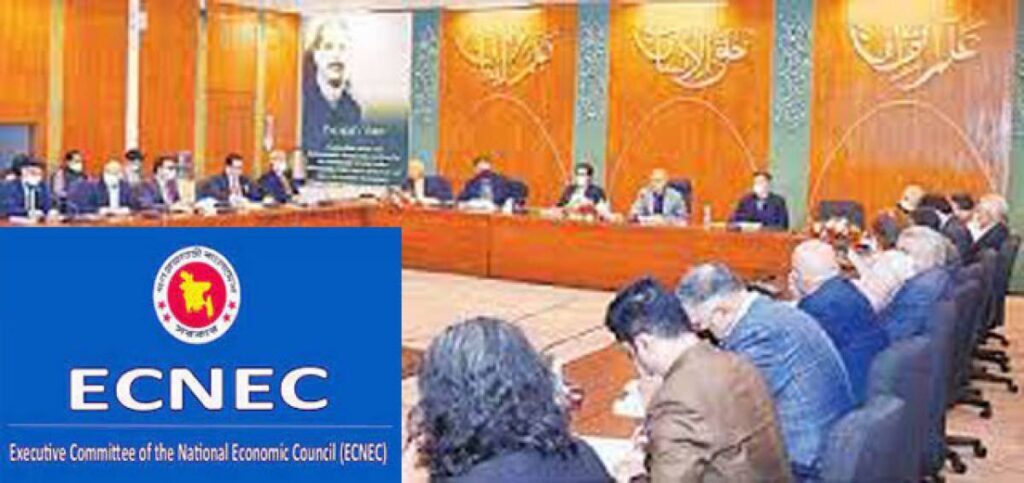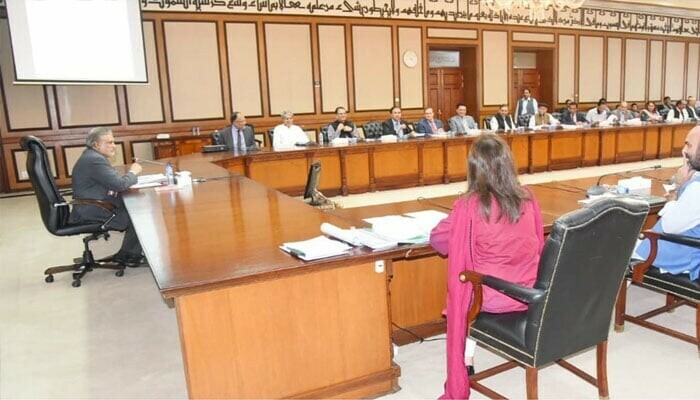ISLAMABAD: The Executive Committee of the National Economic Council (ECNEC) has approved eight crucial projects with a total value of Rs1,201 billion.
These projects encompass infrastructural development, nuclear power plants, and the implementation of the Pakistan Raises Revenue Project, aimed at enhancing the tax-to-GDP ratio.
The ECNEC meeting, chaired by the Federal Finance Minister, Ishaq Dar, took place on Thursday.
However, During the session, the Planning Commission presented a project titled “IPF Component of Pakistan Raises Revenue Project” to the Federal Board of Revenue (FBR).
This initiative, with a total value of Rs21.518 billion (including a $80 million loan from the World Bank), aims to bolster the tax-to-GDP ratio.
The FBR intends to establish 30 mobile facilitation centers in the first phase, with a second phase to follow upon successful execution and approval from the Planning Commission.
The main objectives of the IPF component are to reduce tax expenditure, broaden the tax base, and modernize FBR by implementing advanced ICT-based operations.
Another approved project is the revised version of the Ministry of Communication’s initiative titled “Dualisation of Rawalpindi-Kahuta Road.”
Moreover, this 28.4 km project includes the construction of a 4-lane Bridge over Sihala Railway pass, Sinhala bypass, and Kahuta bypass.
The total cost of this project, which will be financed on a 50:50 basis by the federal and provincial governments, stands at Rs23.545 billion.

The National Highway Authority (NHA) will execute this vital infrastructural development.
Additionally, the ECNEC considered a revised project by the Ministry of Defence Production, “Infrastructure Up-gradation of Karachi Shipyard and Engineering Works (KSEW).”
on the other hand,the project’s primary focus is on enhancing the underwater repair capability and rehabilitating/upgrading existing concrete structures to restore two dry docks for ships and submarines.
With an updated cost of Rs10.689 billion, including a Foreign Exchange Component (FEC) of Rs4.934 billion, this initiative received the ECNEC’s approval.


